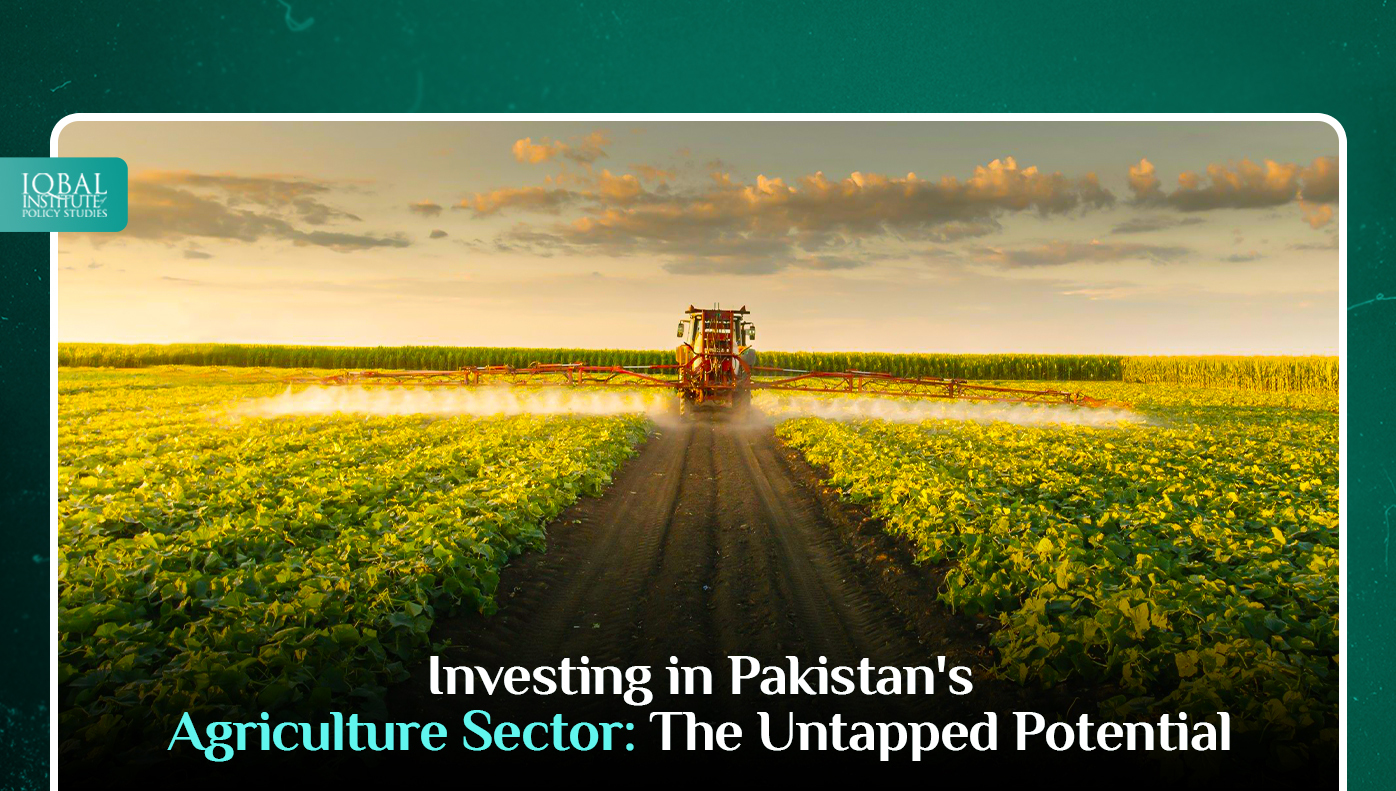Agriculture is the lifeline of Pakistan’s economy, serving as the primary source of livelihood for a significant portion of the country’s population. With fertile lands, diverse climates, and a rich agricultural heritage, Pakistan boasts an abundant agricultural sector that contributes significantly to its GDP and exports. It has the potential to become a global agricultural powerhouse. However, despite its rich agricultural heritage, Pakistan’s agriculture sector remains largely untapped in terms of its full potential.
Agriculture: The Lifeline of Pakistan
Playing a pivotal role in Pakistan’s economy, the agriculture sector is a substantial contributor to the country’s GDP, engaging more than 42.3% of its workforce. Within this sector, a diverse array of crops, including wheat, rice, cotton, sugarcane, and maize, as well as an assortment of fruits and vegetables, thrives alongside integral components like livestock and dairy. This agricultural prowess is underpinned by Pakistan’s fortunate possession of fertile alluvial plains and a network of rivers, including the mighty Indus River, which serves as a crucial source of irrigation. Consequently, Pakistan ranks among the world’s leading producers of rice and wheat. Beyond economic significance, agriculture holds a deeper role as a bastion of food security and a wellspring of livelihoods, notably in rural regions, where it employs a substantial portion of the labor force and sustains numerous families.
Investment Opportunities in Pakistan’s Agriculture Sector
The agriculture sector in Pakistan presents compelling investment prospects, driven by its enduring significance and the chance to tackle prevalent challenges. One key opportunity for investors lies in modernizing farming practices, given the reliance on traditional methods. By investing in cutting-edge agricultural machinery and contemporary techniques, productivity and profitability can be significantly enhanced. Additionally, the agri-business sector holds substantial potential, particularly in food processing, packaging, and distribution. Streamlining the supply chain can elevate the value of agricultural products and ensure access to quality produce.
Pakistan’s horticulture sector, known for its fruits, remains largely untapped, offering investors a chance to meet the rising demand for high-quality organic fruits both domestically and internationally. Supporting modern orchards and organic farming practices can cater to this demand. Furthermore, the extensive livestock sector, encompassing cattle, buffaloes, and goats, invites investments in dairy farming and modern processing facilities. This investment can boost milk production and improve the quality of dairy products. Pakistan’s strategic geographical location also opens doors for export-oriented agriculture investments, leveraging proximity to key markets in the Middle East and Central Asia, offering abundant opportunities for investors interested in Pakistan’s expanding role in international agriculture exports.
Challenges of Investing in Pakistan’s Agriculture Sector
The agriculture sector in Pakistan faces several formidable challenges that have significant implications for the country’s food security, economic stability, and livelihoods. Among these challenges, water scarcity is a pressing concern, with a growing gap between water supply and demand due to increasing population and climate variability. Outdated farming practices, often reliant on traditional methods, hinder productivity and sustainability. Land fragmentation is a common issue, making large-scale agricultural operations challenging. Access to affordable agricultural financing remains a hurdle for both small and large-scale investors. Inadequate infrastructure and logistics impede the efficient transportation of agricultural products to markets, resulting in post-harvest losses. Pakistan’s vulnerability to climate change-related challenges, such as erratic weather patterns, floods, and droughts, threatens agricultural productivity and poses risks to food security. Addressing these challenges is essential to ensure the resilience and growth of Pakistan’s agriculture sector.
The pervasive issue of soil degradation, attributed to poor soil management practices and erosion, threatens the long-term fertility and health of agricultural lands. Inefficient use of water resources exacerbates the problem, often due to outdated irrigation systems and a lack of conservation practices. The sector also faces difficulties related to pest and disease management, affecting crop yields and quality. Unpredictable global commodity prices and market volatility can impact the income and profitability of farmers. Moreover, land tenure issues and disputes over property rights can hinder investment and modernization efforts. Balancing the need for increased agricultural production with environmental sustainability and resource conservation is an ongoing challenge. Collectively, addressing these multifaceted challenges is vital for the resilience and growth of Pakistan’s agriculture sector, ensuring food security, economic stability, and improved livelihoods for the population.
The Way Forward
Addressing Pakistan’s agricultural challenges demands a unified approach emphasizing sustainability, innovation, and resilience. Modernizing farming practices with advanced tech and sustainable methods is key to boosting productivity and curbing resource wastage. Improved access to affordable financing can fuel both small and large-scale modernization efforts. Research for disease-resistant crops, extension services, land consolidation, and logistics infrastructure are vital. Encouraging climate-resilient practices and facilitating exports via supportive policies and partnerships among stakeholders is essential to unleashing the sector’s full potential.
The Bottom Line
Pakistan’s agriculture sector, with its fertile land, diverse crops, and abundant water resources, holds untapped potential for investors. By addressing the sector’s challenges and leveraging its opportunities, investors can not only generate returns but also contribute to the economic development and food security of the nation. As the world’s population continues to grow, the importance of agriculture in meeting global food demand makes investing in Pakistan’s agriculture sector a promising endeavor.
In conclusion, Pakistan’s agriculture sector is a hidden gem waiting to be explored and harnessed for its full potential. With the right investments and a commitment to sustainable and modern practices, the sector can thrive and benefit both the nation and investors.
This article is written by Shaan Abbas. Shaan is a research analyst at the Iqbal Institute of Policy Studies (IIPS).



Leave a Reply